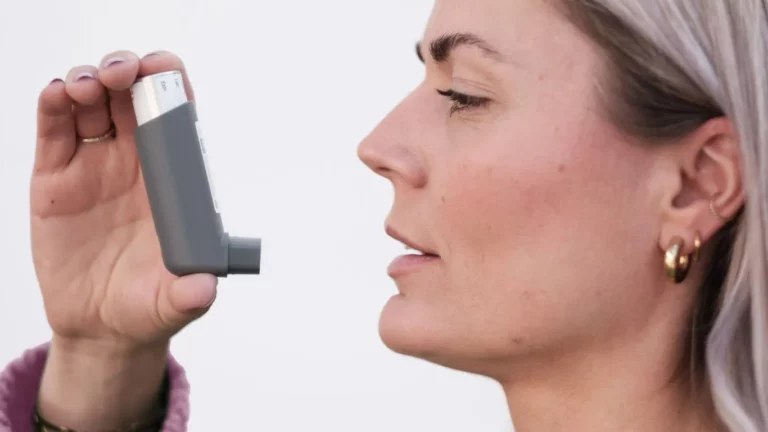Ultimate GERD Friendly Travel Snacks for Comfortable On-the-Go Eating
Traveling with GERD can be tricky, especially when it comes to finding snacks that won’t upset your stomach or trigger uncomfortable symptoms. As a Medical Assistant working in a Gastroenterology Clinic, I’ve seen firsthand how careful dietary choices can make a huge difference for people managing GERD. Over time, I’ve picked up some practical tips and go-to snack ideas that are not only easy to pack but also gentle on the digestive system. Whether you’re hitting the road for a quick weekend getaway or embarking on a longer trip, having the right GERD friendly travel snacks at hand can be a real game-changer.
Why Choosing GERD Friendly Travel Snacks Matters
When you have GERD (gastroesophageal reflux disease), what you eat can either soothe your symptoms or send them into overdrive. Traveling often means relying on quick bites, convenience foods, or unfamiliar meals, which can easily lead to discomfort if you’re not careful. Snacks that are high in acid, spice, or fat can worsen heartburn or reflux symptoms. From my experience in the clinic, many patients underestimate how much snacks impact their GERD management during travel. Having options that are easy on your esophagus helps keep symptoms at bay and lets you enjoy your trip without constant worry.

Top Characteristics of GERD Friendly Travel Snacks
Before diving into specific snacks, it’s helpful to understand what makes a snack GERD-friendly. This can guide your choices, whether you’re packing your own or picking something up on the go.
Low Acid & Non-Spicy
GERD symptoms are often aggravated by acidic foods like citrus fruits, tomatoes, and vinegar-based snacks. Spicy ingredients can also irritate the lining of your esophagus. So, it’s best to steer clear of those. Instead, snacks that are bland or mildly flavored tend to work better.
Low Fat & Easy to Digest
Fatty foods slow down digestion and can increase reflux episodes. Travel snacks should ideally be low in fat but still provide enough energy to keep you going. Think along the lines of lean proteins and simple carbs that your body can easily break down.
Portion Control
Overeating is a common trigger for GERD flare-ups, so snacks that are easy to portion and won’t encourage bingeing are a smart choice. Single-serve packs or small homemade portions help keep your intake in check.

My Favorite GERD Friendly Travel Snacks
From my time at the clinic and personal travel experiences, I’ve come to love these snack options. They’re simple to prepare, easy to carry, and—most importantly—gentle on the digestive system.
Fresh Fruits That Won’t Trigger Reflux
- Bananas: Naturally low in acid and a great source of quick energy.
- Melons: Watermelon, cantaloupe, and honeydew are hydrating and mild.
- Apples (non-citrus): Peeled apples can be easier on your stomach.
Tip: Pack these fruits in small containers or reusable snack bags for easy access.
Crunchy & Filling Snacks
- Rice cakes: Low fat and low acid, plus they’re portable.
- Oatmeal cookies: Homemade with minimal sugar and no spices, these can satisfy a sweet craving.
- Unsalted crackers: Stick to plain varieties to avoid triggering symptoms.
Protein-Packed Options
- Boiled eggs: Easy to prepare ahead and gentle on the stomach.
- Low-fat cheese sticks: Great for a quick protein boost without much fat.
- Turkey slices: Lean and satisfying, just watch for added spices or preservatives.

These choices reflect a balance between what I recommend in the clinic and what has worked well for me personally during travel. It’s all about keeping your stomach calm and symptoms minimal, without sacrificing nutrition or convenience.
Smart Packing Tips for GERD Friendly Travel Snacks
One thing I’ve learned after years working alongside gastroenterologists and seeing patients manage GERD on the go is that packing your snacks right can make a huge difference. It’s not just about what you eat but how you carry it. Having your GERD friendly travel snacks organized and easily accessible can help you avoid last-minute choices that might trigger symptoms.
Use Small, Airtight Containers
From my personal trips, I swear by using small containers or reusable snack bags. They keep your snacks fresh and prevent any mix-ups with other food items. Plus, portion control becomes much easier. Instead of grabbing a handful of something that might not be GERD-friendly, you have a pre-measured snack ready to go.
Separate Snacks by Type
I like to group my snacks by category—fruits in one container, crunchy snacks in another, and proteins in a separate one. This helps avoid cross-contamination of flavors or smells that might upset your stomach. It also makes it easier to grab exactly what you want, no fuss involved.
Keep Snacks Cool When Needed
Some of the best GERD friendly snacks, like boiled eggs or cheese sticks, need to stay cool. A small insulated bag or a travel cooler pack is a must-have in your travel kit. When I’m on the road, having a mini cooler helps me avoid settling for unhealthy fast food just because I’m worried about food safety.

On-the-Go Snack Ideas That Won’t Upset Your GERD
Sometimes, no matter how much you plan, you need a quick snack option from a store or café. From my experience in the clinic and on trips, here are some easy picks that are usually safe bets for those with GERD.
Plain Yogurt with a Touch of Honey
Plain, low-fat yogurt is soothing and low in acid, which makes it a great snack option. Just avoid flavored yogurts with added sugars or fruit chunks that can be acidic. Adding a little honey provides sweetness without the acid overload.
Whole Grain Toast or Crackers
Whole grains are gentle on the stomach and provide fiber, which helps digestion. Toast or crackers that are plain (no butter or spreads) can be a quick, safe option when you’re on the move.
Soft Cooked Vegetables
If you find a place that sells steamed or boiled veggies, these can be surprisingly good snacks for GERD. Carrots, green beans, and zucchini tend to be well-tolerated and nutritious. They’re also filling without being heavy.
Hydrating with Herbal Teas
While not exactly a snack, sipping on herbal teas like chamomile or ginger can help calm your digestive system between bites. I often recommend this to patients when they’re traveling because it’s a natural, comforting way to keep symptoms down.

Foods and Ingredients to Avoid When Choosing GERD Friendly Travel Snacks
One of the trickiest parts about traveling with GERD is the abundance of tempting but problematic snack choices. Based on my clinic experience, here are some common offenders you should steer clear of while packing or buying snacks on the go.
High Acidic Foods
- Citrus fruits: Oranges, lemons, grapefruits, and anything with citrus can trigger reflux symptoms.
- Tomato-based snacks: Think salsa, ketchup, or sun-dried tomatoes—these are a no-go.
Spicy & Heavily Seasoned Snacks
Chips, nuts, or crackers loaded with chili, pepper, or other strong spices can irritate the esophagus and worsen GERD symptoms. Avoid snacks with these strong flavors while traveling.
Fatty and Fried Foods
Though tempting, fried snacks and foods high in saturated fats slow digestion and can trigger reflux. Things like potato chips, greasy pastries, or fried finger foods are best left out of your travel snack list.
Caffeinated & Carbonated Beverages
While not snacks, these often accompany travel munching and can aggravate GERD symptoms. Avoid sodas, energy drinks, and caffeinated teas or coffees close to snack time.

In the clinic, I always emphasize the importance of reading ingredient labels carefully. Sometimes snacks that seem harmless at first glance have hidden acids, spices, or fats that can sneakily cause symptoms. It’s all about making educated choices that suit your body’s unique needs.
How to Manage GERD Symptoms While Traveling
Traveling with GERD isn’t just about choosing the right snacks—it’s also about how you manage your symptoms throughout the journey. From my experience as a Medical Assistant in a Gastroenterology Clinic, small habits can make a huge difference in preventing flare-ups while on the move. Let me share some practical tips that can keep your digestive system calm and your trip enjoyable.
Stay Hydrated, But Smartly
Drinking enough water is essential, especially when you’re on the go. However, it’s best to sip water slowly rather than gulping it down quickly, which can increase pressure on the stomach and trigger reflux. I always advise patients to carry a refillable water bottle and take small, frequent sips. Avoid carbonated drinks as they tend to cause bloating and worsen symptoms.
Eat Smaller, Frequent Meals
One of the most common triggers for GERD symptoms is eating large meals. When traveling, it’s tempting to skip meals or overeat when you finally get the chance to eat. Instead, try to eat smaller portions and snack more frequently. This keeps your stomach from becoming too full and reduces the chances of reflux. Packing those GERD friendly travel snacks we talked about earlier makes this so much easier.
Avoid Lying Down Immediately After Eating
Whether you’re on a plane, train, or just resting in a hotel, try not to lie down right after eating. Gravity helps keep stomach acid where it belongs, so sitting upright or standing for at least 30 minutes after eating is ideal. If you’re on a long flight, try to get up and walk around periodically—it’s good for digestion and overall circulation.

Quick Tips for Eating Out with GERD While Traveling
Sometimes, no matter how much you prepare, eating out is unavoidable. As someone who’s seen countless patients navigating GERD challenges, I can tell you it’s all about making smart choices without stressing yourself out.
Ask Questions and Customize Your Order
Don’t be shy about asking the server how dishes are prepared. Requesting to hold spicy sauces, opting for grilled instead of fried, or asking for dressings on the side can save you from a painful reflux episode. I’ve often reminded patients that it’s okay to customize meals—your health is the priority.
Choose Simple, Balanced Plates
Look for meals with lean proteins, steamed or roasted vegetables, and simple carbs. Avoid dishes heavy on cheese, cream sauces, or fried sides. Personally, I find that grilled chicken with steamed veggies is a reliable choice in most restaurants.
Watch Your Beverage Choices
As we covered earlier, avoid carbonated, caffeinated, or alcoholic drinks when eating out. Stick to water or herbal teas, which won’t aggravate your symptoms and can even help soothe your stomach.
Additional Lifestyle Tips for Traveling with GERD
Managing GERD on the road isn’t just about snacks and meals. Other lifestyle tweaks can make a big impact, too.
Wear Comfortable Clothing
Tight clothes can put extra pressure on your abdomen, making reflux worse. Choose loose, breathable fabrics that won’t constrict your stomach—especially important during long flights or car rides.
Manage Stress
Traveling can be stressful, and stress is known to worsen GERD symptoms. I’ve seen many patients benefit from simple relaxation techniques like deep breathing, meditation, or even listening to calming music. Taking time to unwind helps keep your digestive system happy.
Stick to Your Medication Schedule
If you take medications for GERD, don’t skip doses just because you’re traveling. Keeping your meds on schedule is critical for controlling symptoms. Using reminders or travel pill organizers can help keep you on track.

References
Disclaimer
This article is intended for informational purposes only and does not substitute professional medical advice, diagnosis, or treatment. If you have GERD or any other health concerns, please consult with your healthcare provider before making changes to your diet or treatment plan, especially when traveling.

Camellia Wulansari is a dedicated Medical Assistant at a local clinic and a passionate health writer at Healthusias.com. With years of hands-on experience in patient care and a deep interest in preventive medicine, she bridges the gap between clinical knowledge and accessible health information. Camellia specializes in writing about digestive health, chronic conditions like GERD and hypertension, respiratory issues, and autoimmune diseases, aiming to empower readers with practical, easy-to-understand insights. When she’s not assisting patients or writing, you’ll find her enjoying quiet mornings with coffee and a medical journal in hand—or jamming to her favorite metal band, Lamb of God.







